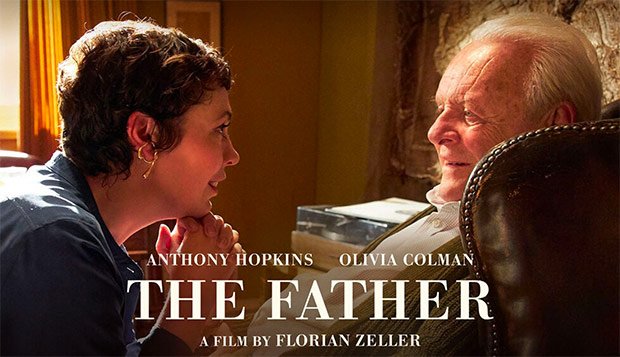"The father" Movie Review: Living With A Dementia Patient.
Movie Story
At a certain stage in life, time stops and the past overlaps with the present to a degree that we can hardly distinguish between them. The story of our film today revolves around an old man, in his eighties, who lives in an apartment in a London alleyway, and his dementia has reached an advanced degree, as the health care provider resigned due to his severe mood swings, and his daughter was The woman who lives with her husband visits him regularly until she moved him to live with her, and his problems were the most important reasons for her divorce from her husband. After a while, she found another chance for a happy married life, but this time she had to travel abroad, which caused her to stop visiting her father, Antonio, and this was the reason for his deteriorating condition further.

Movie Review
Florian Zeller, through his film "The Father", created a realistic picture of the problems of deterioration in the mind at the end of life, where he shed light on this problem from the two sides explain the patient's feelings and how he sees things, in addition to the suffering of his relatives and those who care about him.
Zeller relied on two prominent names in the world of art. The first is (Anthony Hopkins) He is the oldest actor in history who won an Oscar, He proved through this film that he deserves more than her, as he excelled in embodying the personality of a mental health patient and the symptoms he suffers from, such as memory problems that were evident in Many of the movie scenes, and he appeared in another scene, unable to wear his clothes, where the inability to complete daily tasks is one of the most important symptoms of dementia, in addition to the changes that occur in the person, which were embodied in the scene that Antonio was telling his daughter about his talent for dancing, cut while she was She tries to convince him that he is an engineer and has nothing to do with dancing.
There is an important point that must be talked about in this film, which is the overlapping of events and their ambiguity at times, as it is difficult for viewers in many scenes to determine whether Antonio is in his apartment or his daughter’s apartment.
In addition to some of the fantasies and doubts that he was having, many viewers considered scenes that occurred in the film, but they are only in Antonio's head, and the reason behind this is to put them inside the mental health patient's head.
There is a type of film called nonlinear narrative, and its events are not arranged for the viewers like "Momento" movie, but after watching the movie, they can rearrange the scenes, but in our movie, the events were not scattered because the movie is a nonlinear narrative, but because the events from the perspective of Antonio, who was suffering from mental deterioration and the viewer could not be rearranging events.
The second name is (Olivia Colman), who also won an Oscar. Her role or performance in the film was not less important than (Hopkins), as she embodied a sense of responsibility towards her sick father, and it led to the destruction of her married life after learning that her husband was insulting her father.
The last scenes may be the best thing in the film, as Antonio was able to make the audience feel the bitterness of the mental health patient in the last stages of his life, as the face of the current health care provider mixed with the former Laura, who he saw as his daughter, so he cried and said I feel that my papers are falling and that I need the tenderness of the mother, it was a scene full of feelings.
From my point of view, the best thing the film presented was to clarify the extent of the problem of dementia and the extent of the suffering suffered by the mental health patient.